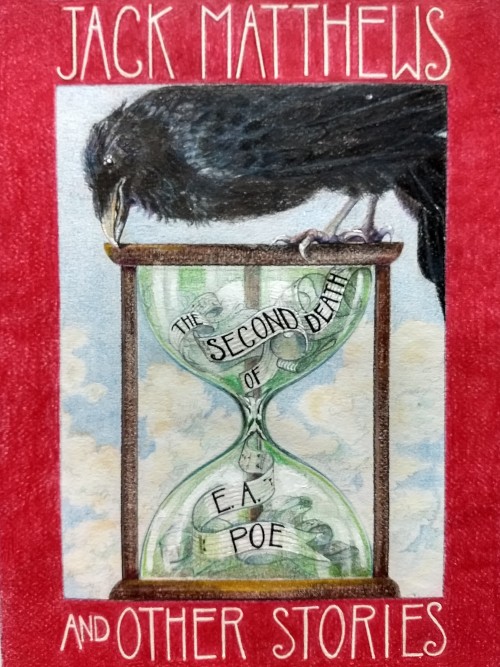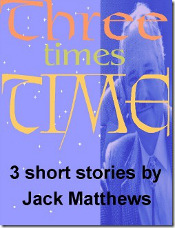 I am happy to announce the publication of a new book by author Jack Matthews. It is being published by Nine Point Publishing. This book was written a decade ago and arose out of a fascination with Schopenhauer’s life and philosophies. Schopenhauer’s philosophical writings are well-known for their gloomy outlook, but Matthews had always found his writing style so beautiful and witty that it more than made up for the philosopher’s ostensible pessimism. Matthews talked briefly about this project in a 2010 audio interview and in another 2009 interview alluded to the amusing fact that it was published first in translation by a Czech publisher before it was published in English.
I am happy to announce the publication of a new book by author Jack Matthews. It is being published by Nine Point Publishing. This book was written a decade ago and arose out of a fascination with Schopenhauer’s life and philosophies. Schopenhauer’s philosophical writings are well-known for their gloomy outlook, but Matthews had always found his writing style so beautiful and witty that it more than made up for the philosopher’s ostensible pessimism. Matthews talked briefly about this project in a 2010 audio interview and in another 2009 interview alluded to the amusing fact that it was published first in translation by a Czech publisher before it was published in English.
With permission from Nine Point Publishing, this website features an extended excerpt from the book titled, Arthur and Adele: A Philosopher’s Strange, Complicated (and Tragic) Relationship with his Sister.
I will be posting a review of this book (update: here it is). I just skimmed the first page or two and was admiring the lovely cover art by Barbiel Matthews-Saunders (Jack’s daughter). Another odd fact. A few years ago Matthews sent me an unpublished novella manuscript called “The Evil Sparrow Sings” which concerns an imaginary love triangle and philosophical dialogue involving Schopenhauer and Lord Byron. I’m sure this novella will be published eventually (probably sooner rather than later), and it’s an interesting read — not just for historical/philosophical reasons, but the story frame is about a modern production of this imaginary play and the creative tension existing between those who stage a play and the person who created it.
Publisher : Nine Point Publishing.
Info: 167 pages, Hardcover, (No ebook available)
First US Publication Date: June 15 2015.
Buy: From Amazon.com or directly from the publisher
Book Description: The book is a mélange of biography, novel, and philosophical treatise, and it is basically constructed in narrative summary (structured in the form of a narrowed text, somewhat like poetry, although not, strictly speaking, for poetic reasons) often interrupted by a variety of quotations, most from the works of Schopenhauer himself, but many from the works of such Schopenhauerian figures as Napoleon, Byron, Gracian, Wittgenstein, Goethe, et al. Then there are frequent, narrative interludes, much like short stories but cumulative and thus serving the text. While invented, these narrative interludes are all based upon well-documented events in Schopenhauer’s life. The book’s tone often verges upon the ironic, frolicsome and light-hearted, designed to serve in counterpoint to the familiar stereotype of Schopenhauer as a relentlessly grim pessimist. But it is intrinsic to the book’s very conception that this tonal counterpoint is not as incompatible with the “real” Schopenhauer as that of his familiar image, because the enormous vitality of his style simply could not have grown out of the quagmire of utter despair, in that the voice of despair is silence, whereas there is enormous energy and brio in all that Schopenhauer wrote.
“Jack Matthews’ creative biography explores Schopenhauer’s days and works. Rarely has philosophy been so vital and interesting. Matthews transforms gray ponderings into the red blood of life and white bone of story. A man and his times spring quick from the page. Schopenhauer’s Will is beautifully written. The prose is clear, and the great philosopher’s ideas stretch taut and well–defined as muscles. The book delights and teaches, and as readers turn pages they will so turn through ideas that their lives will be enriched.”
– Sam Pickering (inspiration for John Keating in Dead Poet’s Society)
“What better person could there be to write a creative meditation and dramatization of Schopenhauer’s life than philosophical novelist Jack Matthews?… this work reads like a novel (indeed, it reminds me of Penelope Fitzgerald’s retelling of the life of Novalis in her brilliant novel, Blue Flower)… The best thing about Schopenhauer’s Will is that it balances the need to convey Schopenhauer’s ideas with Matthews’ need to tell a good story; it’s just as much a book about dog walking as it is about one man’s gloomy philosophies.” (Robert Nagle’s Book Review: Schopenhauer’s Will (Das Testament) by Jack Matthews)








